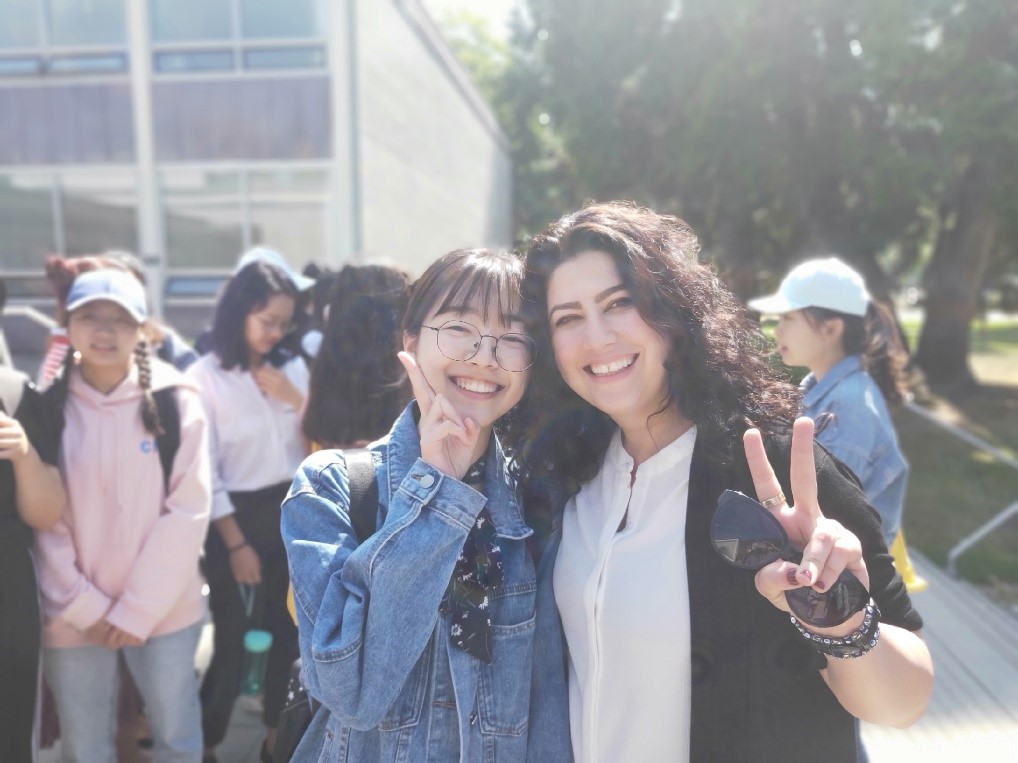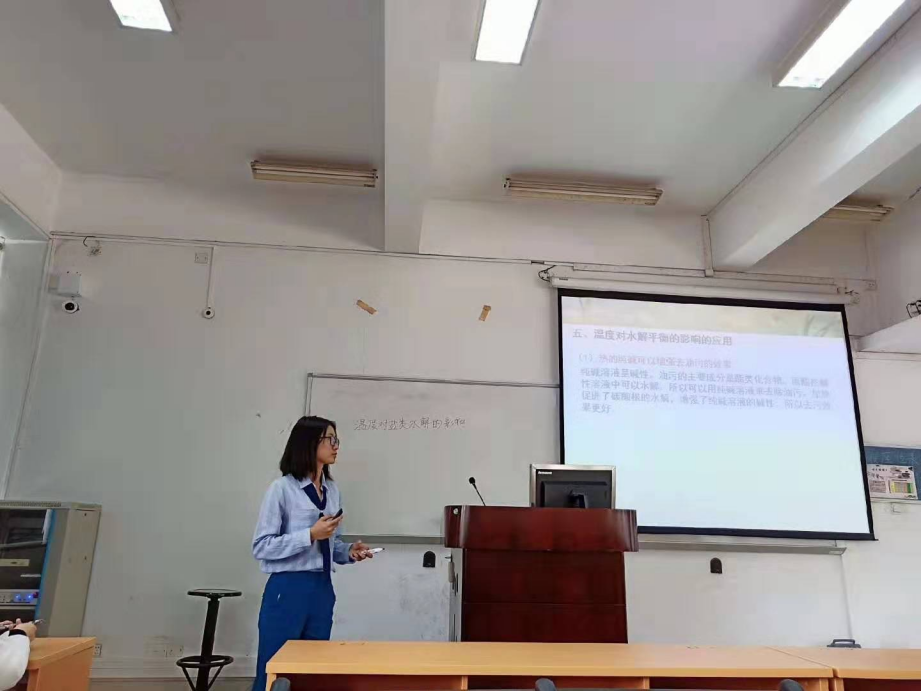
Likes
Editor's Note: Under the theme of “Challenge and Change”, the second English writing contest of SCNU has came to a close with over 280 articles from 28 schools and colleges. We recognize all prize winners for their excellent performance. Awarded winners have been announced (see results), and all winning articles will be published in this column.
-------
By Huang Zixuan
2020 has proved its uniqueness in the human history for all the things that have taken place so far. The unexpected COVID-19 pandemic seems to be the one and only defendant. Having claimed hundreds of millions of lives, the pandemic has undoubtedly revealed the vulnerabilities of humanity. Nevertheless, it has surfaced human's resourcefulness and solidarity as well. Despite all the clashes, most countries have united as one and are striving for a better future. Though much has been done, it is not enough, especially when it comes to international education.

International education is essential.
Foreign study, though not necessary for everyone, is an efficient way for the improvement of individuals, academic and international relations and the economy, according to Bruce Pohlmann, Ph.D. in anthropology from the University of California, Berkeley. Students and teachers who have overseas experience are more likely to develop different insights and land favorable jobs. Schools and institutions which receive people from different backgrounds are more likely to have achievements considering the competitive edge they possess. Serving as informal diplomats, those who have received a foreign education can also promote the friendship between countries. These programs contribute to the economic development of both countries, since the host countries have higher income and the beneficiary countries will end up with higher-educated human resources.
This year, however, the door has been closed. Some students and scholars have been barred from studying in countries with better control of coronavirus outbreaks, while some are just simply afraid to go to their intended countries because of the countries’ undesirable conditions. These people have been forced to change their original plans because the only way they can continue their studies is through on-line study and even that is not available to many of them. Individuals are not the only victims. According to Jessica Sarles-Dinsick, Associate Dean for International Programs and Special Projects at Columbia University, 30% to 40% of international students might not come to the U.S. this year, which would mean colleges lose about 400,000 students. Although this is only one extreme case, considering America’s sluggish reaction to the pandemic, it is an undeniable fact that the international education industry might face a steep decrease if the pandemic continues to domain.
Unfortunate as it may seem to be, however, the status quo has also provided us with a chance to change the way we usually deal with foreign education. We tend to consider students who go to that specific country in the flesh as international students. In the post-COVID society, however, this should not be the case. Since most people cannot actually go to a different country with their visas, why not guarantee them with access to on-line resources? The writer believes the reason why many students and scholars’ life patterns have been changed in the way they ought not, owes to the ignorance towards international education and lack of support from relevant organizations. In order to change the status quo, the following should be done.
First, the public, especially governments, schools, and digital platforms of countries should raise the awareness of foreign education. Foreign education, like any kinds of education, is a bulwark against inequalities. By promoting foreign education and supporting students and scholars to studying abroad, the gap between developed countries and developing countries can be expected to be bridged gradually. And just as what the UNESCO has said in its report, in education as in health, we are safe when everybody is safe; we flourish when everybody flourishes. As a result, whatever efforts can be made, they should be made.
Second, governments, schools, and digital platforms with enough competence should give more supports to students and scholars who could have studied abroad. They should make joint efforts to further promote the development of on-line education. The pandemic has indeed blocked our path even to the sidewalks in front of our gates, but as long as we have an electronic device, we are still connected to the whole world. How comes that a student in relatively poorer and less advanced areas close to China cannot study with Chinese students through digital platforms like MOOCs, when even people in America know what Chinese’s favorite songs are through Tik-Tok? There are platforms supported by the states and universities available to foreign students, but these are far from enough, considering the number of students. It is also not enough for schools to provide livestream platforms considering the time zones. Though it might be considered a more efficient and interesting way to experience the life and culture in that country in the flesh in the past, times has changed. In the post-COVID society, on-line courses may take up most part of an international student’s curriculum, and technical defects and other political and economic issues should not put sand in the wheels of international education. UNESCO has presented ideas for action that may advance education and that includes making free and open source technologies available to teachers and students, which means that the states should financially incentivize schools and digital platforms, and these institutions and companies should in return, provide more accessible resources to students in need.
Although COVID has brought disasters and suffering to all of humanity, we have to admit that it has also provided us with a chance of renewal. And although there are hassles among countries, we have to realize that we should strive for a shared future. As for international education, we should not neglect the fact that many students and scholars’ life patterns have been changed by the pandemic. And it is time for all of us, especially those who have the ability and who are in power to help these people. Since we are now living in such a modern society with advanced technology, these people’s careers may be back on track simply by being provided with a network that connects different schools and institutions.
What to read next:










